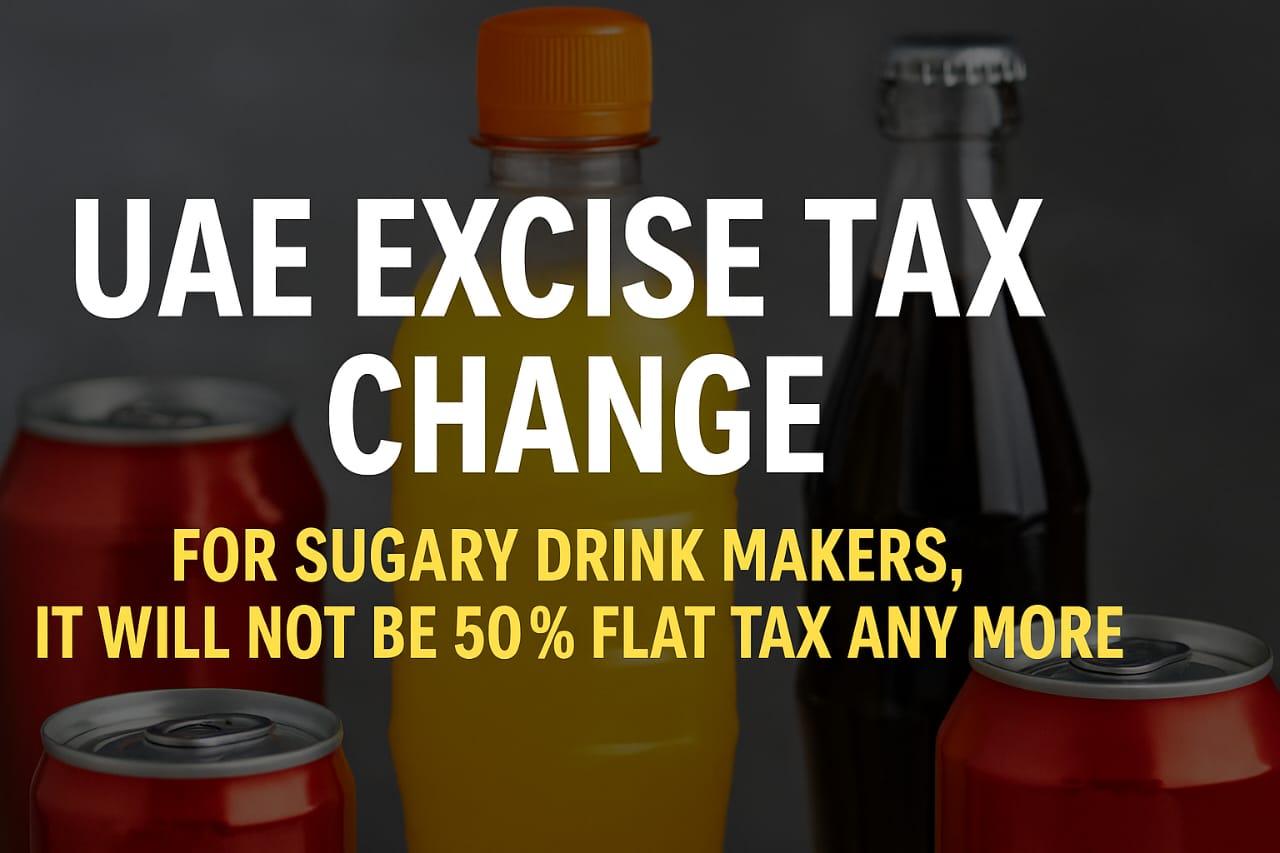John Smith
Alice. 'I've read that in.

Big Changes Coming for Sugary Drink Makers in the UAE. Say goodbye to the flat 50% tax. Starting 2026, sugary drinks will be taxed based on how sweet they actually are. This health-first move is set to shake up the beverage industry, lower sugar consumption, and bring smarter choices to store shelves.
The United Arab Emirates is set to introduce a major revision to its excise tax system, specifically targeting sugar-sweetened beverages. Starting in early 2026, the current flat 50% excise tax on sugary drinks will be replaced by a tiered taxation model based on the actual sugar content of each beverage. This marks a significant shift in the government’s strategy—moving from a uniform rate to a health-oriented tax system aimed at reducing sugar consumption and encouraging healthier lifestyles.
Under the existing regulation, all sweetened beverages—whether carbonated, still, or powdered—are taxed at a uniform rate of 50%, regardless of how much sugar they contain. This means that a soft drink with extremely high sugar levels is taxed the same as a lightly sweetened iced tea. With the new framework, drinks will be taxed in proportion to their sugar concentration, which will be measured per 100 milliliters. The more sugar a drink contains, the higher the tax rate it will attract.
The move has been welcomed by healthcare professionals and policy experts alike. Public health authorities have long warned about the dangers of excessive sugar intake, linking it to serious conditions such as obesity, Type 2 diabetes, cardiovascular disease, and other metabolic disorders. With the UAE experiencing increasing rates of lifestyle-related illnesses, the government is now taking direct steps to influence consumer behavior and industry standards through fiscal policy.
By linking tax levels directly to sugar content, the new system provides a strong incentive for beverage manufacturers to reformulate their products. Companies that reduce added sugars in their drinks will face lower tax burdens, potentially allowing them to offer products at more competitive prices. This could lead to a wave of product innovation, with healthier beverages gaining a stronger foothold in the UAE market.
From a consumer perspective, this reform has multiple advantages. Individuals who are health-conscious or looking to reduce their sugar intake will benefit from wider availability of lower-sugar options at potentially lower prices. Meanwhile, drinks that are heavily sweetened will likely become more expensive, creating a natural deterrent against their frequent consumption. In essence, the tax system will nudge both supply and demand toward healthier habits.
This policy shift also places the UAE in line with several progressive economies that have already implemented sugar-indexed tax models. Countries like the United Kingdom, Ireland, South Africa, and Malaysia have introduced similar frameworks and reported measurable health benefits. For example, in the UK, sugar consumption from soft drinks dropped significantly within a year of implementing a sugar-tiered tax, and several companies reformulated their recipes to avoid the higher tax brackets. The UAE is now positioning itself as a regional leader in health-based fiscal governance.
Although exact tax tiers and sugar thresholds are yet to be officially announced, government authorities have confirmed that these details will be shared well ahead of the 2026 rollout. This will give beverage manufacturers, retailers, and importers sufficient time to update their formulations, packaging, pricing strategies, and compliance systems. The Ministry of Finance and the Federal Tax Authority are expected to conduct educational campaigns to help businesses and consumers prepare for the transition.
For businesses, this is not just a regulatory update—it’s a chance to adapt proactively to shifting market expectations. Beverage companies are encouraged to audit their current product ranges and start exploring lower-sugar alternatives. Importers and retailers may need to revise their inventories and adjust shelf space in line with changing demand. By preparing early, businesses can not only comply with the new tax regime but also gain a competitive advantage by responding to health-conscious consumers.
For consumers, this change might initially result in visible price variations across beverage categories. Drinks with high sugar content could become noticeably more expensive, while less sugary or sugar-free alternatives may become more affordable. Over time, this could lead to a major shift in purchasing behavior, especially among younger demographics who are increasingly mindful of their health.
In summary, the UAE’s move to replace the current flat sugar tax with a sugar-indexed model is a forward-thinking step that integrates economic policy with public health goals. It reflects a growing global trend where taxation is being used as a lever to drive positive societal outcomes. Once implemented, this new excise tax structure is expected to influence consumer choices, encourage product innovation, and contribute to reducing the country’s burden of sugar-related diseases. For both businesses and consumers, the next few months will be a crucial period of adaptation, awareness, and opportunity.
Your email address will not be published. Required fields are marked *